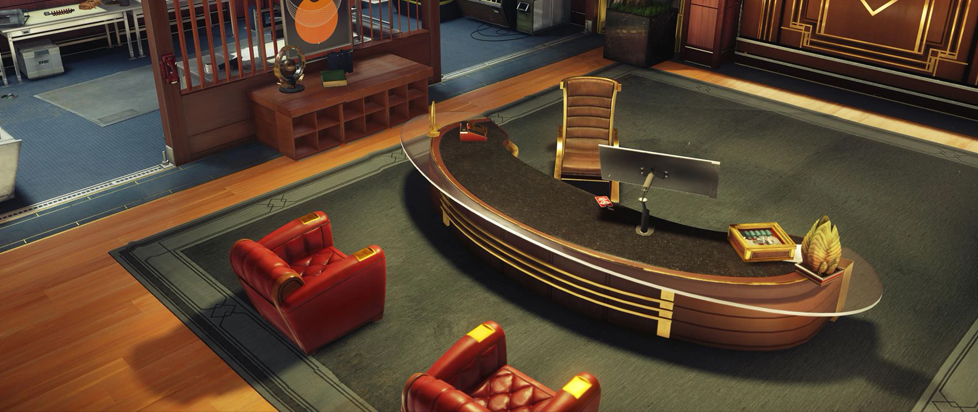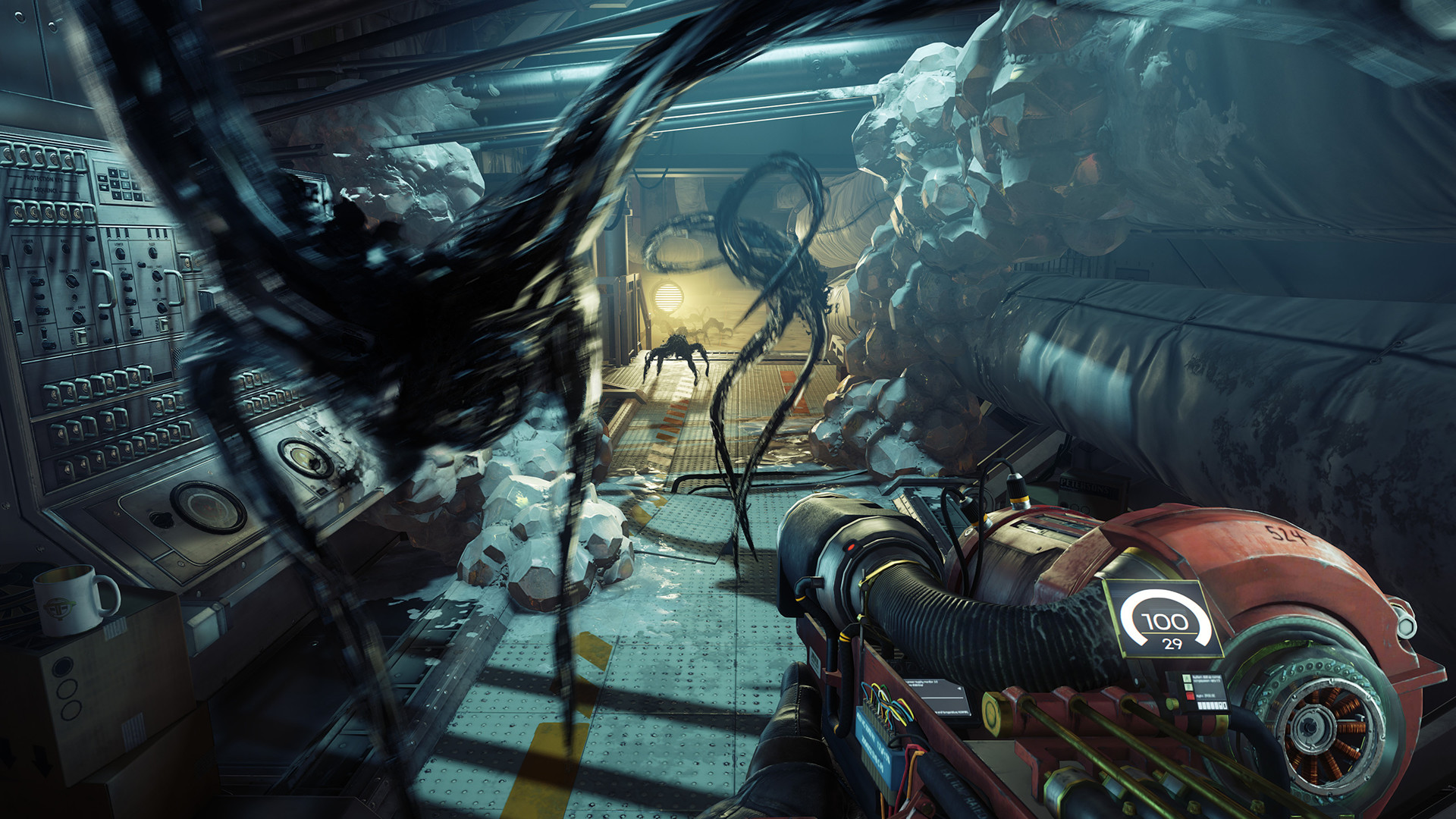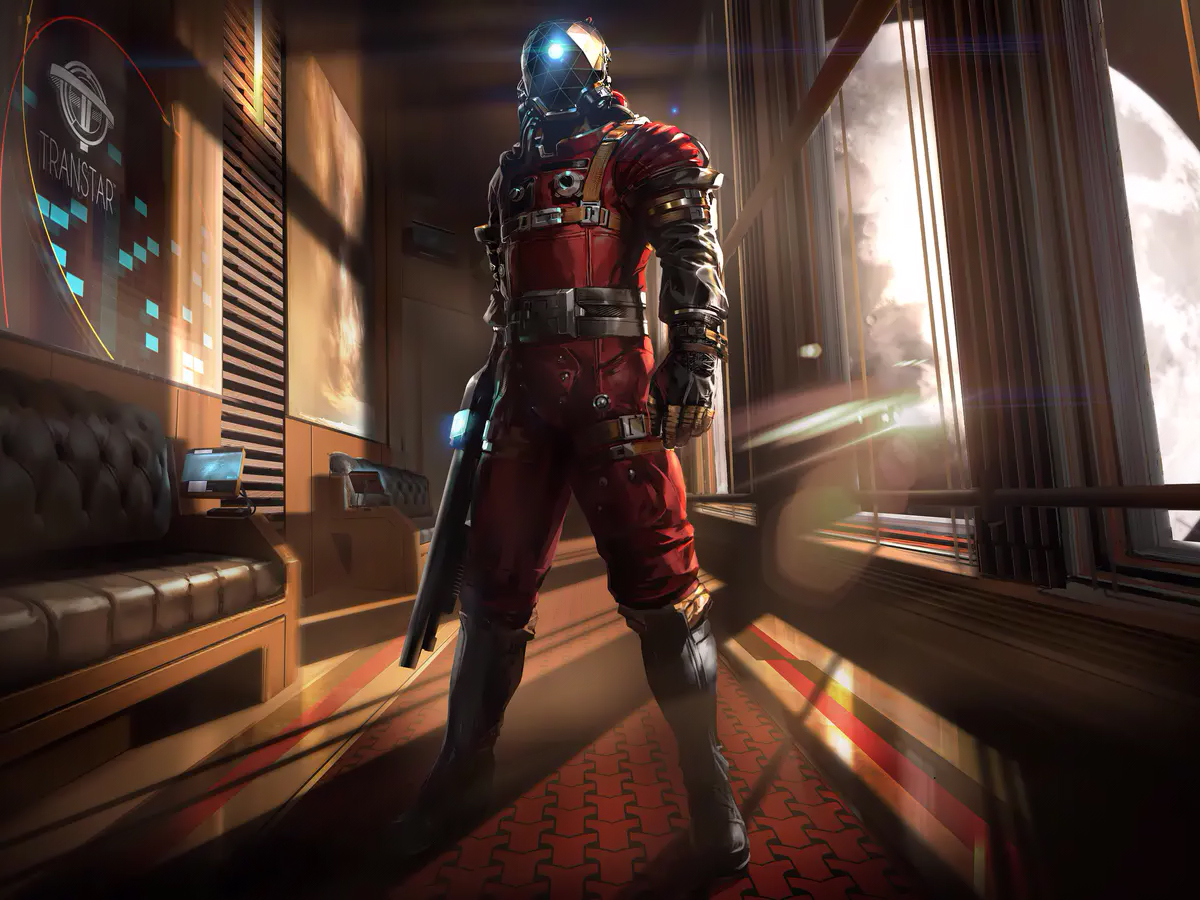
In Videogames, Everybody’s Working for the Weekend
 This column is a reprint from Unwinnable Monthly #135. If you like what you see, grab the magazine for less than ten dollars, or subscribe and get all future magazines for half price.
This column is a reprint from Unwinnable Monthly #135. If you like what you see, grab the magazine for less than ten dollars, or subscribe and get all future magazines for half price.
———
Where videogames meet real life…
———
Prey is a videogame about having an extremely bad day at work. Sure, it’s many other things too: a meditation on bioengineering and human ethics, an exceptional sci-fi drama set on an orbiting space station, a narrative first-person shooter built around complex roleplaying systems. But at heart, it’s mostly about being a scientist who picked the wrong day to go into the office, and everything else surrounding that central conceit is well-designed window dressing intended to make you feel like you’re on a space adventure. Which, technically, you are on a space adventure. Except at work.
If you’re still reading this for some reason (thank you), then stick with me here (mild spoilers ahead). Prey’s plot begins with its protagonist Dr. Morgan Yu, a scientist working for a corporation called TranStar Industries, waking up in their apartment. That apartment turns out to be part of a simulation on a space station named Talos I that becomes overrun by genetically modified shapeshifting lifeforms. Everything quickly turns to shit after that moment, as things sometimes do after your alarm clock goes off, and what starts as another day at work soon becomes a struggle for survival. In space.
Thanks to its masterful environmental storytelling, Prey’s world tells you a lot about what it was like to work on Talos I before aliens, collectively known as the Typhon, staged a hostile takeover. For example. scanning workstations and computer terminals shows us TranStar Industries did not enforce the use of a secure password management system, as evidenced by people just writing them down on Post-It Notes or whatever else they had laying around. Come on! Somewhere on the station, a despondent IT manager probably puts whiskey in their coffee, stares into the darkness of space and wonders where their career went wrong.

Hacking people’s emails also tells us exactly who was pissed at who, which coworkers were semi-secretly dating one another and which engineers dicked around to build a mostly useless knock-off Nerf crossbow. Inappropriate workplace relationships, theft of company time and resources and petty backstabbing all over the place! Small-time problems are, well, small, but they’re especially exasperating when they distract from the certain death that lurks around every corner. Somehow, even in extreme life-or-death situations, people will still bicker about who’s really the bigger asshole.
Speaking of which, everyday office supplies on Talos I can kill you. That’s because the shapeshifting Typhon can assume the form of any inanimate object in order to blend in. Thinking about “borrowing” your cubicle-mate’s coffee cup? Not so fast! There’s a non-trivial chance that thing is going to turn into a monster that will tear your face off, unlike Katelyn in accounting, who would just leave a passive-aggressive note about respecting private property or some shit that’d just make you wish you were dead. The malevolent shapeshifter sounds less annoying, but given the option, I think I’ll choose life.
Somewhere around the halfway point through Prey’s 40-hour runtime (ironically about the same as a solid week of work), the thought that the game is mostly a work simulator of sorts started to click in my head, which may be a byproduct of playing late at night when my neurons aren’t firing on all cylinders. It’s not totally fair to reduce Prey to little more than The Shockingly Calm Scientist’s Bad Day at Work, but I can’t completely disentangle the game’s workplace narrative and setting either. It’s also not unique in that regard, and the longer I sat with that thought, the more I realized that nearly every game I play to relax and unwind ironically has some sort of connection to work.
As a case in point, the widely beloved indie hit Umurangi Generation (one of Unwinnable’s Best Games of 2020) is literally about working as a courier with a camera in a walled-off police state. Madden NFL 21, probably my most-played title this year in terms of hours, is about controlling the fates of professional athletes. While it’s never explicitly discussed, the Doom Guy in Doom Eternal must be drawing a paycheck from the Marines, right? The man’s work certainly hasn’t gotten any better since Doom (2016) and his mortgage back home isn’t getting any cheaper either. Give the man a raise!

Sometimes the connection between game worlds and the working world is even more obvious. For example, the VR title Job Simulator is exactly what it sounds like. While I haven’t played it myself, I did watch my wife (who runs a small vegetable farm) obsessively “go to the farm” in Stardew Valley. In a similar bout of a choice in game reflecting a choice in career, I recently pulled The Occupation from my backlog, which puts players in the shoes of an investigative reporter. I’ve never uncovered any actual conspiracies myself, but I do have a journalism degree and the game’s time-based mechanics do invoke the feeling of working under a deadline (for the record, this column was, for once, filed on time).
Depending on how far you’re willing to stretch the definition of work, games that don’t emulate employment somehow may actually be in the minority. Street Fighter? Prize fighting. Zelda? World-saving mercenary. Mario? Exploring the imagination of a plumber who is doing shrooms instead of going to work. Gran Turismo? Pro race car driver.
Pokemon Go adds work as a monster trainer to your actual life in real time. Tony Hawk’s Pro Skater has the word “pro” right in the title. Your protagonist in Animal Crossing has no formal profession but is somehow skilled in landscaping, interior design and archeology. Whatever it takes to get paid.
Notably, this is all without touching on esports of any sort, or what it means to play games while choosing a career in development, content creation, or another area of the industry. The more the games business matures, the more means it provides for people to turn their pastime into their profession.
There is certainly nothing wrong with work playing a prominent role in art and fiction, whether in videogames or any other medium. We spend most of our waking hours at work, and for those fortunate enough to pursue their passions on the job, that work can mean much more than just a paycheck. Employment is central to the functioning of our lives and society, and thus it should be no surprise that it factors so prominently into our creative expression, whether as a core theme or as something to be railed against.
But I’m also left with nagging questions about what it means to go to work all day, do more work around the house and then play games that essentially emulate someone else’s job (and then to analyze and write about those games for this column, a hobby that is also a job). Surely there must be more to the imagination than this, and certainly there are plenty of games (and books and films and songs) that have nothing to do with either going to work or avoiding work or escaping the reality of having to go to work.
If I have any sort of gaming resolution in 2021, it might be to seek out more experiences that exist strictly as entertainment, disconnected from performing labor in exchange for compensation as a means of getting to live for another day. If I follow through on that resolution all the way though, you probably won’t hear from me about those experiences in this space. Away from work, there are some things you need to do just for yourself.

———
Ben Sailer is a writer based out of Fargo, ND, where he survives the cold with his wife and dog. His writing also regularly appears in New Noise Magazine.




